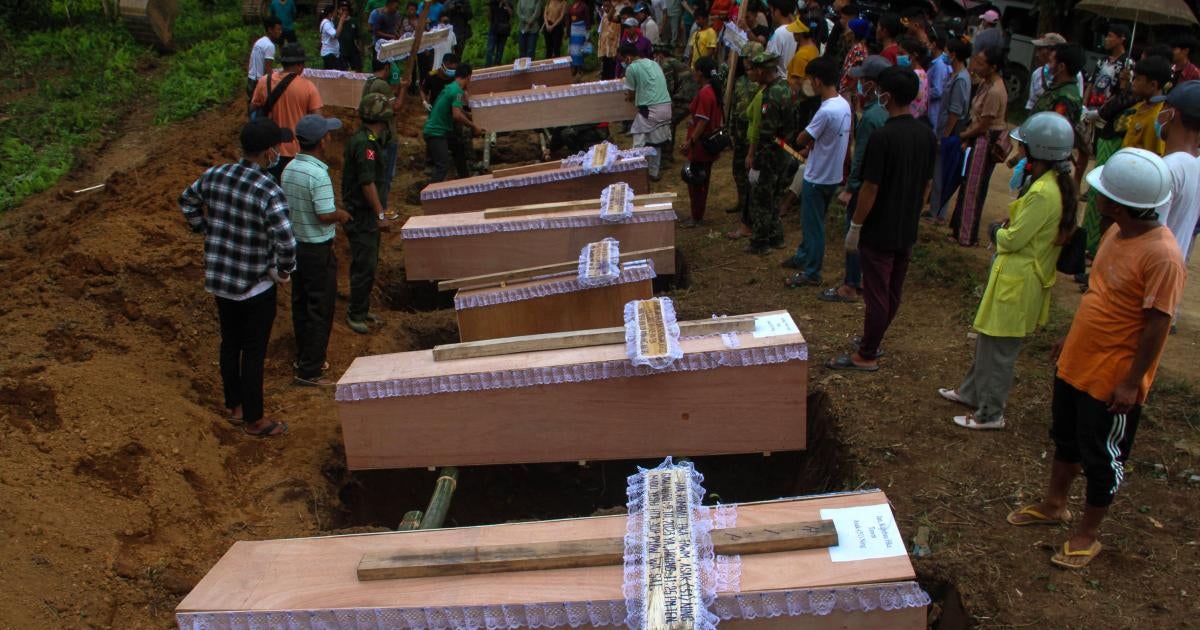A “raging fire of brutality” is engulfing Myanmar, where military forces have killed more than 4,000 civilians since seizing power in a 2021 coup, according to an independent United Nations expert on Myanmar. On Monday before a UN General Assembly committee, the UN secretary-general, the UN special rapporteur on Myanmar, and a special UN investigative team presented separate reports detailing war crimes and crimes against humanity in the country.
Since taking power, the military junta has unlawfully attacked villages in areas controlled by anti-junta forces and ethnic armed groups, including schools, hospitals, and camps for displaced people. Airstrikes in some regions have increased more than 300 percent in the past year. The special rapporteur, Thomas Andrews, said the security forces have executed civilians in custody, “at times in mass killings.” They have “burned, beheaded, dismembered, and disfigured bodies in an apparent attempt to terrorize the civilian population.”
Andrews reported that “[c]ruelty and dehumanization are defining features of sexual crimes perpetrated by the military, including gang rape.” In some cases, the bodies of the victims of extrajudicial killings have shown signs of rape or sexual violence. According to Andrews, “[these] victims have included children.” The UN special investigative mechanism stated that crimes are committed with “the highest levels of cruelty and harm to the victims.”
The reports are shocking but none of them comes as a surprise. Myanmar’s military has a record of brutality that dates back decades: long-running atrocities against ethnic groups, violence against students, monks, and journalists since the 1980s, and post-coup abuses against pro-democracy and minority groups, including Rohingya Muslims who remain in apartheid conditions in Rakhine State.
Myanmar’s generals have never faced any real accountability for these abuses. This impunity has fueled ongoing crimes.
The UN Security Council should urgently impose an arms embargo and targeted sanctions on the military’s revenues. The council should also refer Myanmar to the International Criminal Court.
China and Russia have opposed such measures. Without Security Council action, governments that have already imposed targeted sanctions on Myanmar’s military and its money flows, including restrictions targeting aviation fuel, should better coordinate to make those sanctions more effective. Neighboring countries, including Thailand and Singapore, should cooperate with these efforts. All concerned governments should be focusing their own legal systems on Myanmar’s military, using universal jurisdiction laws on war crimes and crimes against humanity to build cases for prosecution.



